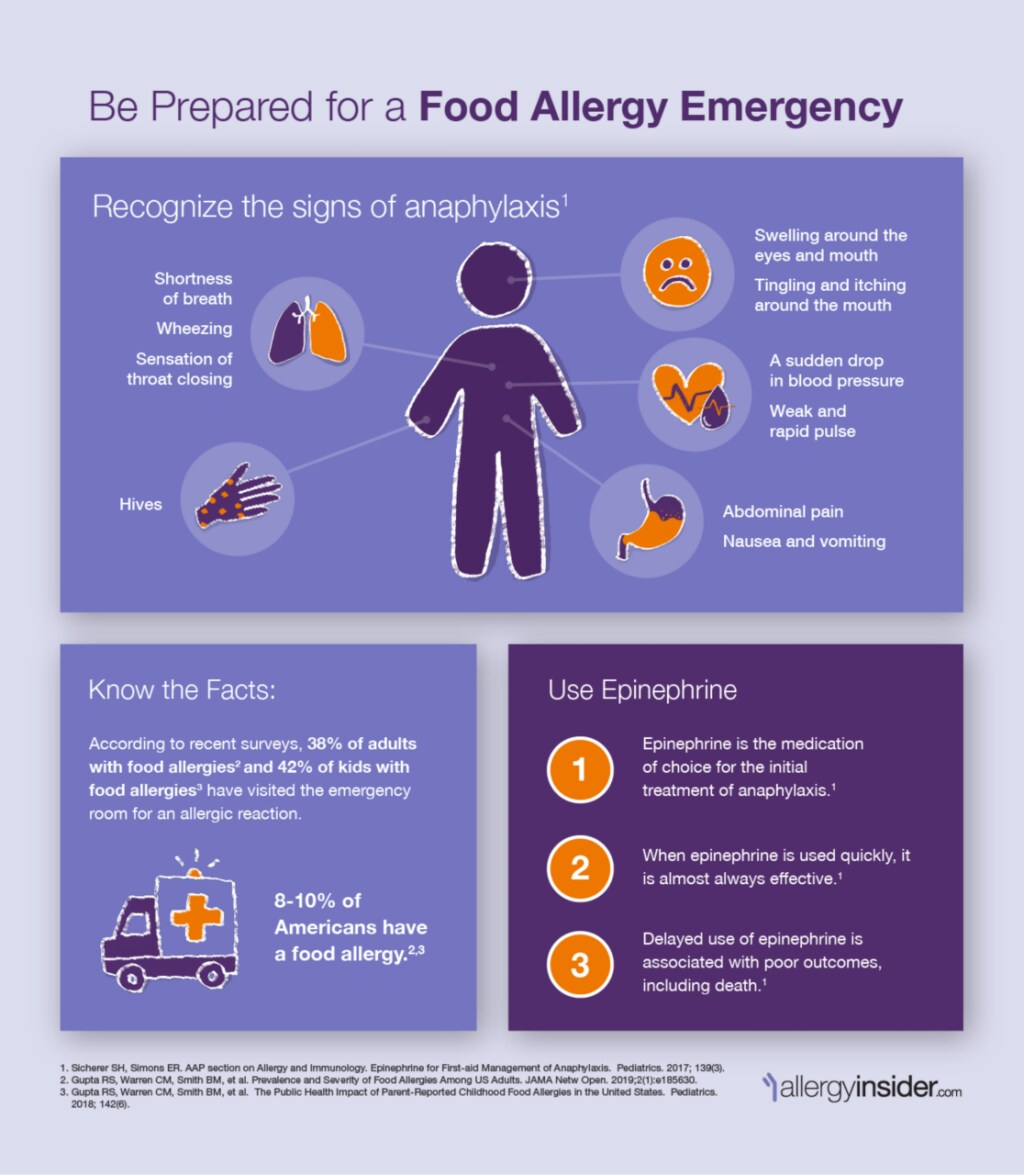Ultimate Guide To Food Allergy Air Travel Tips: Ensuring A Safe Journey With Click-Worthy Insights!
Food Allergy Air Travel Tips
Greetings, Readers! Today, we will be discussing a topic that is of great importance to those with food allergies who frequently travel by air. Traveling with food allergies can be challenging, but with the right tips and precautions, it can be made much easier and safer. In this article, we will provide you with valuable information and advice on how to navigate air travel with food allergies. So, whether you are a frequent traveler or planning your next trip, these tips will help ensure a smooth and enjoyable journey.
Table of Contents
1. Introduction
1 Picture Gallery: Ultimate Guide To Food Allergy Air Travel Tips: Ensuring A Safe Journey With Click-Worthy Insights!

2. What are food allergies?

Image Source: thermofisher.com
3. Who is at risk?
4. When to be cautious?
5. Where to find allergy-friendly options?
6. Why is it important to take precautions?
7. How to prepare for air travel?
8. Advantages and disadvantages of traveling with food allergies
9. FAQ
10. Conclusion
11. Final Remarks
Introduction
1. Food allergies are a common condition that affects millions of people worldwide. It occurs when the immune system mistakenly identifies certain foods as harmful and reacts accordingly.
2. For individuals with food allergies, traveling can be a source of anxiety and stress. The unfamiliar environment and limited food options can pose a risk to their health and well-being.
3. The purpose of this article is to provide food allergy sufferers with essential tips to ensure safe and enjoyable air travel. By following these precautions, individuals with food allergies can minimize the risk of an allergic reaction and have a worry-free journey.
4. It is important to note that these tips are not exhaustive and may vary depending on individual circumstances and specific allergies. It is always recommended to consult with a healthcare professional or allergist before traveling.
5. Now, let’s dive into the world of food allergy air travel tips and discover how you can make your journey safer and more enjoyable.
What are food allergies?
1. Food allergies are adverse reactions caused by the immune system when it mistakenly identifies certain proteins in food as harmful. The immune system releases chemicals such as histamine, which trigger allergic symptoms.
2. Common food allergens include peanuts, tree nuts, eggs, milk, soy, wheat, fish, and shellfish. These allergens can cause mild to severe allergic reactions, ranging from hives and itching to anaphylaxis, a life-threatening condition.
3. It is essential for individuals with food allergies to avoid consuming any food that contains their allergens to prevent allergic reactions. This becomes particularly challenging when traveling, as they may not have direct control over the food preparation.
4. If you have a food allergy, it is crucial to inform the airline and any other relevant parties in advance to ensure they can accommodate your needs.
5. It is also recommended to carry necessary medications, such as antihistamines or epinephrine auto-injectors, in case of an allergic reaction.
6. Be aware that food allergies can develop at any age, so even if you have never experienced an allergic reaction before, it is important to remain vigilant and take necessary precautions.
7. By being educated about your allergies and taking preventive measures, you can enjoy your air travel experience with peace of mind.
Who is at risk?
1. Food allergies can affect anyone, regardless of age, gender, or ethnicity. However, certain individuals may be at a higher risk of developing food allergies or experiencing severe allergic reactions.
2. Children are more susceptible to food allergies, with milk, eggs, peanuts, and tree nuts being the most common allergens in this age group.
3. Individuals with a family history of food allergies or other allergic conditions, such as asthma or eczema, are also at a higher risk.
4. It is important to be aware of your own or your child’s allergies and take appropriate precautions to avoid allergens.
5. If you suspect you or your child has a food allergy, it is recommended to consult with a healthcare professional or allergist for proper diagnosis and management.
6. Remember, prevention is key when it comes to food allergies, especially during air travel.
7. By understanding your risk and taking necessary precautions, you can ensure a safer journey for yourself or your loved ones.
When to be cautious?
1. It is crucial to be cautious and aware of potential allergens at all times, especially when traveling by air.
2. Airline meals can often contain hidden allergens or cross-contamination, making it essential to inform the airline of your food allergies in advance.
3. It is best to avoid consuming food offered by the airline to minimize the risk of an allergic reaction. Instead, bring your own safe and allergen-free meals and snacks.
4. Be cautious when purchasing food at airports or during layovers, as not all establishments may have proper allergen labeling or knowledge of food allergens.
5. Always read food labels carefully and ask restaurant staff about ingredients and potential cross-contamination risks.
6. Even if a food item does not directly contain your allergen, it may still be at risk of cross-contamination during preparation or packaging.
7. It is better to be safe than sorry when it comes to food allergies, so always err on the side of caution and avoid consuming anything that may pose a risk.
Where to find allergy-friendly options?
1. Finding allergy-friendly options can be challenging, especially in unfamiliar airports or destinations. However, with careful planning and research, it is possible to locate suitable options.
2. Many airlines now offer allergen-free meals or accommodate special dietary requirements. It is advisable to contact the airline in advance to discuss your needs and ensure they can provide appropriate meals.
3. Some airports have dedicated allergy-friendly restaurants or food outlets that cater to individuals with specific dietary restrictions. Research the airport facilities beforehand to identify these options.
4. It is also recommended to carry your own snacks or meals to avoid relying solely on airport or airline food.
5. Pack non-perishable snacks such as granola bars, dried fruits, or nuts (if not allergic), which can provide sustenance in case suitable options are not available.
6. Additionally, consider bringing an allergy translation card or a medical bracelet that clearly states your food allergies, especially if traveling to a foreign country with a language barrier.
7. By doing your research and planning ahead, you can ensure a more enjoyable and stress-free travel experience.
Why is it important to take precautions?
1. Taking precautions when traveling with food allergies is crucial to avoid potential allergic reactions.
2. An allergic reaction can range from mild symptoms, such as hives or an itchy throat, to severe symptoms that can be life-threatening, such as difficulty breathing or anaphylaxis.
3. In an unfamiliar environment, it may be challenging to identify and avoid allergens, which can increase the risk of accidental exposure.
4. Taking necessary precautions, such as informing the airline, carrying medications, and avoiding potential allergens, can significantly reduce the risk of a severe allergic reaction.
5. Remember, it is always better to be safe than sorry. Being vigilant and prepared can make a significant difference in ensuring a safe and enjoyable trip.
6. By taking precautions and following the tips outlined in this article, individuals with food allergies can have peace of mind during their air travel.
7. Don’t let food allergies hold you back from exploring the world – with proper planning and precautions, you can embark on exciting adventures worry-free.
How to prepare for air travel?
1. Preparation is key when it comes to air travel with food allergies. Here are some essential steps to follow:
2. Research the airline’s policy regarding food allergies and special dietary requirements. Some airlines may require advance notice or documentation from a healthcare professional.
3. Inform the airline of your allergies when booking your ticket and reiterate your requirements closer to the travel date.
4. Consider bringing your own meals and snacks to avoid potential allergens. Pack them in an insulated bag if necessary.
5. Carry necessary medications, such as antihistamines or epinephrine auto-injectors, in your carry-on bag. Ensure they are easily accessible in case of an emergency.
6. Make sure to have travel insurance that covers medical emergencies, including allergic reactions.
7. Familiarize yourself with the location of medical facilities at your destination and have contact information for local emergency services.
Advantages and Disadvantages of Traveling with Food Allergies
1. Advantages of traveling with food allergies:
2. Increased awareness and knowledge about food allergies.
3. Greater appreciation for safe and allergen-free food options.
4. The opportunity to discover new allergy-friendly restaurants or food outlets.
5. The ability to educate others about food allergies and promote understanding and empathy.
6. Disadvantages of traveling with food allergies:
7. Limited food options, especially in unfamiliar locations.
8. The need for careful planning and preparation to ensure allergen-free meals.
9. The potential risk of accidental exposure to allergens.
10. The need to carry medications and be vigilant at all times.
11. Despite the challenges, many individuals with food allergies continue to travel and explore the world. With proper precautions, the advantages of traveling outweigh the disadvantages.
FAQ
1. Q: Can I bring my own food on the plane?
A: Yes, you can bring your own food on the plane, especially if you have specific dietary restrictions or food allergies. However, it is advisable to check the airline’s guidelines regarding outside food.
2. Q: What should I do if I have an allergic reaction during a flight?
A: If you experience an allergic reaction during a flight, immediately inform a flight attendant. They are trained to handle medical emergencies and can provide assistance or administer necessary medications.
3. Q: Are airlines required to accommodate passengers with food allergies?
A: Airlines are not legally required to accommodate passengers with food allergies. However, many airlines have policies in place to accommodate special dietary requirements. It is advisable to inform the airline in advance to ensure they can meet your needs.
4. Q: Can I ask the airline to make an announcement about my food allergies?
A: Yes, you can request the airline to make an announcement about your food allergies to nearby passengers. This can help raise awareness and avoid potential cross-contamination.
5. Q: Can I store my epinephrine auto-injector in checked luggage?
A: It is recommended to carry your epinephrine auto-injector in your carry-on bag. In case of an emergency, it should be easily accessible. Checked luggage may be subjected to temperature variations, which can affect the efficacy of the medication.
Conclusion
In conclusion, traveling with food allergies can be challenging, but with the right preparation and precautions, it can be made safer and more enjoyable. By understanding your allergies, informing the airline, carrying necessary medications, and planning ahead, you can minimize the risk of allergic reactions and have a worry-free journey. Remember, prevention is key when it comes to food allergies, and it is always better to be safe than sorry. So, go ahead and explore the world, knowing that you have taken steps to ensure your safety and well-being.
Final Remarks
In this article, we have provided valuable information and tips on how to navigate air travel with food allergies. However, it is important to note that these tips are general in nature and may not apply to everyone. Each individual’s allergies and circumstances may vary, so it is crucial to consult with a healthcare professional or allergist for personalized advice and recommendations. Additionally, it is advisable to stay up to date with the latest research and guidelines on food allergies and air travel. By staying informed and prepared, you can make informed decisions and have a safer travel experience. Bon voyage!
This post topic: Air Travel Tips


